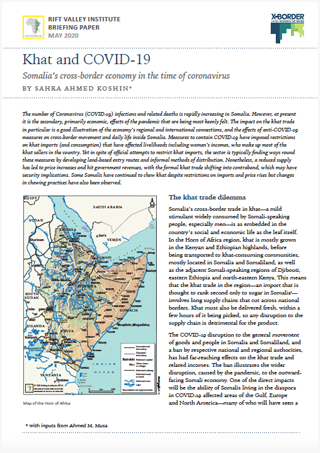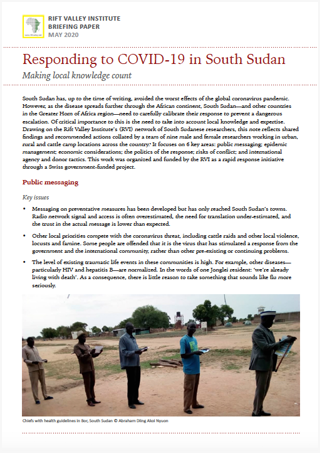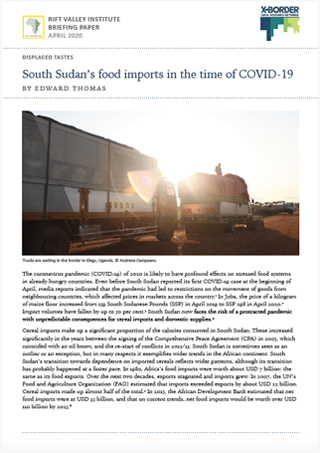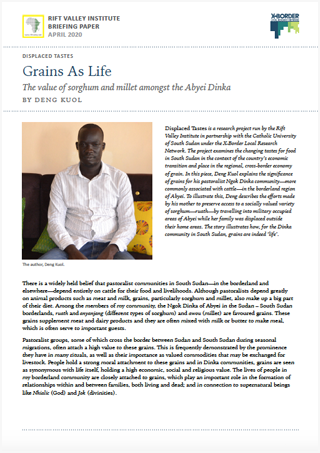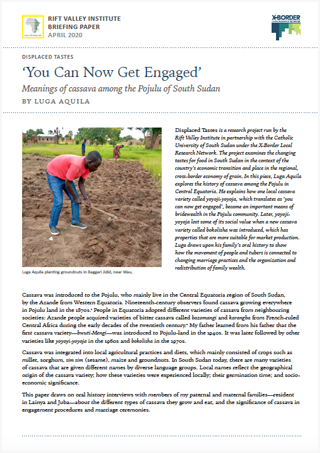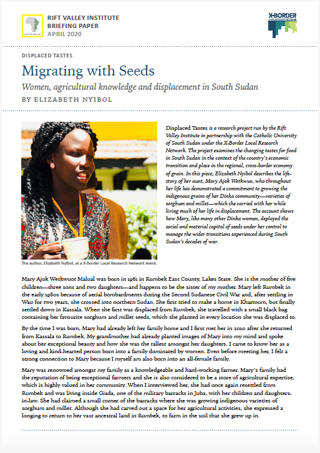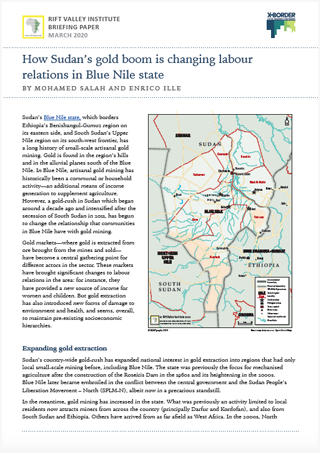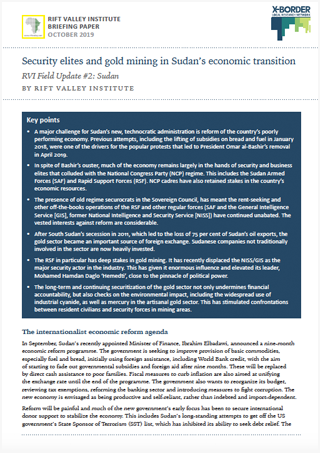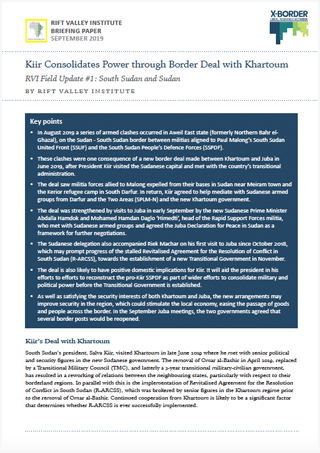The number of Coronavirus (COVID-19) infections and related deaths is rapidly increasing in Somalia. However, at present it is the secondary, primarily economic, effects of the pandemic that are being most keenly felt. The impact on the khat trade…
RVI publishes books, research reports, research papers, briefings and meeting reports in a range of formats. Publications cover policy, research, arts, culture and local knowledge in the countries of eastern and central Africa. Research publications—books, reports and papers—are peer-reviewed. Some RVI publications are also available in French and/or Arabic.
The RVI is a signatory of the Budapest Open Access Initiative (2001); all publications are free for download in PDF format under Creative Commons licences. The views expressed in books and reports published by the RVI are those of the authors, not the Institute.
SEARCH
PUBLICATION TYPE
LANGUAGE
REGION
COUNTRY
South Sudan has, up to the time of writing, avoided the worst effects of the global coronavirus pandemic. However, as the disease spreads further through the African continent, South Sudan—and other countries in the Greater Horn of Africa region—need…
The coronavirus pandemic (COVID-19) of 2020 is likely to have profound effects on stressed food systems in already hungry countries. Even before South Sudan reported its first COVID-19 case at the beginning of April, media reports indicated that the…
Displaced Tastes is a research project run by the Rift Valley Institute in partnership with the Catholic University of South Sudan under the X-Border Local Research Network. The project examines the changing tastes for food in South Sudan in…
Displaced Tastes is a research project run by the Rift Valley Institute in partnership with the Catholic University of South Sudan under the X-Border Local Research Network. The project examines the changing tastes for food in South Sudan in…
Displaced Tastes is a research project run by the Rift Valley Institute in partnership with the Catholic University of South Sudan under the X-Border Local Research Network. The project examines the changing tastes for food in South Sudan in…
Sudan’s Blue Nile state, which borders Ethiopia’s Benishangul-Gumuz region on its eastern side, and South Sudan’s Upper Nile region on its south-west frontier, has a long history of small-scale artisanal gold mining. Gold is found in the region’s hills…
Key Points A major challenge for Sudan’s new, technocratic administration is reform of the country’s poorly performing economy. Previous attempts, including the lifting of subsidies on bread and fuel in January 2018, were one of the drivers for the…
Key Points In August 2019 a series of armed clashes occurred in Aweil East state (formerly Northern Bahr el- Ghazal), on the Sudan – South Sudan border between militias aligned to Paul Malong’s South Sudan United Front (SSUF) and…
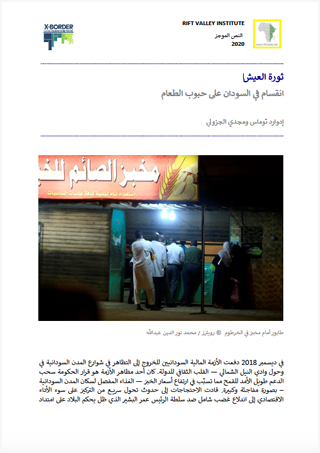
Recent Publications

EWNET Writes: Writing Workshop Session I
December 18, 2025
The Ethiopian Women Researchers Network (EWNET) inaugural writing workshop series aims to not only provide women researchers with uninterrupted time for their scholarly projects, but also build a supportive academic community. The first session, entitled ‘EWNET Writes: Writing Workshop Session

SSC-Khaatumo: Perspectives on the significance and implications of its formation
December 12, 2025
On 15 April 2025, during a visit to the city of Las Anod in Sool, Prime Minister Hassan Abdi Barre officially declared the federal government’s recognition of SSC-Khaatumo (SSC-K hereafter) as a federal member state, marking an important milestone in

Aid and Conflict Sensitivity in Contemporary Ethiopia
November 17, 2025
This study assesses conflict sensitivity practices among humanitarian, development and peacebuilding (HDP) actors in Ethiopia. It seeks to raise awareness and foster a deeper understanding of the evolving aid landscape in the country while analysing the challenges that affect conflict-sensitive

